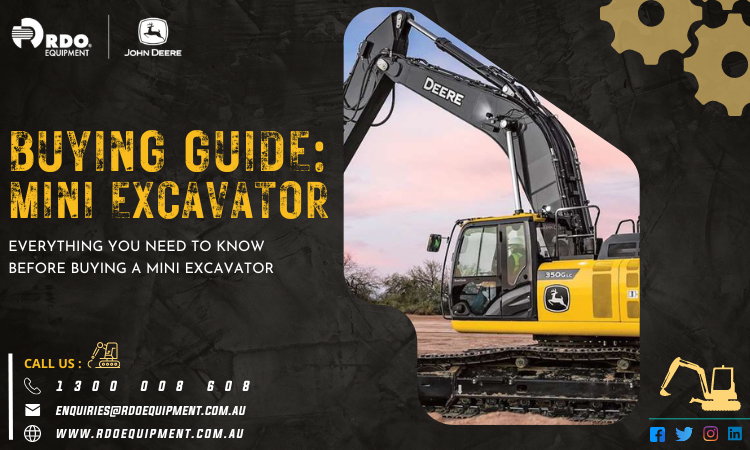Everything You Need to Know Before Buying a Mini Excavator

Mini excavators are a popular choice for a variety of construction and landscaping projects due to their versatility and maneuverability. Whether you are a contractor looking to add one to your fleet, or a homeowner considering renting one for a DIY project, this blog will provide you with all the information you need to make an informed decision. We will cover the different advantages that mini excavators offer, their applications and capabilities, as well as their operating requirements. By the end of this blog, you will have a thorough understanding of mini excavators and be able to confidently decide if one is the right choice for your project.
What is a mini excavator?

A mini excavator is a type of construction equipment that is typically used in tight spaces or areas with limited access. These compact machines are very versatile and can be used for a variety of tasks, such as digging, trenching, and demolition.
Mini excavators usually have an operating weight of less than six metric tons and feature a boom and bucket that are mounted on a rotating platform. The operator sits in a cab that is attached to the platform and controls the machine using joystick levers.
What kinds of projects require a mini excavator?
Mini excavators are often used for landscaping projects, such as digging trenches for irrigation or planting trees. They can also be used for light demolition work, such as removing concrete sidewalks or breaking up asphalt paving. Excavation projects, such as digging foundations for new buildings, are another common application for mini excavators.
In addition to their construction and demolition applications, mini excavators can also be used for a variety of other tasks, such as agricultural work, snow removal, and utility maintenance.
Suggested reading: YOUR COMPLETE GUIDE TO MINI EXCAVATORS
What are the benefits of using a mini excavator?
Mini excavators offer many advantages over larger excavators, including their compact size and maneuverability. These machines can access areas that are inaccessible to larger excavators, making them ideal for tight spaces. They are also less disruptive to the surrounding area and can be used in sensitive environments, such as near historic buildings.
In addition to their small size, mini excavators are also very lightweight, which makes them easy to transport from one job site to another. These machines are also typically less expensive than larger excavators, making them a more budget-friendly option for many construction projects.
How do you operate a mini excavator?
Mini excavators are typically operated with a set of joystick levers that control the boom, bucket, and tracks. The left joystick controls the boom and bucket, while the right joystick controls the tracks. Some models also have a third joystick that is used to operate additional attachments, such as breakers or augers.
To move the excavator forward or backward, the operator simply pushes the appropriate joystick in the desired direction. To turn the machine, the operator pushes one joystick forward and the other backward.
To dig with the bucket, the operator first lowers the boom into position and then tilts the bucket downward. The tracks are then used to slowly move the excavator forward, scooping up soil and debris as it goes.
To dump the bucket, the operator tilts the bucket upward and then uses the tracks to move the excavator backward. The bucket can also be dumped by first lowering the boom and then tilting the bucket upward.
Get your John Deere Mini Excavator from RDO Equipment
If you’re looking for a John Deere mini excavator, RDO Equipment is an official distributor that you can trust. We carry a wide selection of mini excavators from this trusted brand. No matter what your needs are, we have a mini excavator that’s right for you. Visit our website to learn more about our selection of John Deere mini excavators.